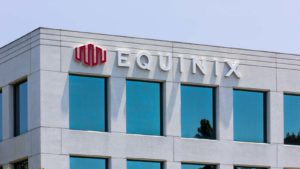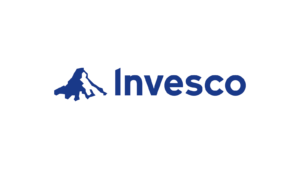Hot stocks from different sectors typically get a lot of attention both in bull and bear markets. When markets are jittery, as they are now, investors look for shares with solid fundamentals and fair valuation levels.
This year is primed to see greater volatility levels. Investors are preparing for tighter monetary and fiscal policies amidst growing uncertainty about a hawkish Federal Reserve. Political tensions in Europe regarding Russia’s approach to Ukraine may be another catalyst for a market correction.
January saw a sell-off in high-growth stocks. The Nasdaq 100 Index has declined roughly 10% year-to-date (YTD), while the S&P 500 is down 7% during the same period. In today’s hyper-sensitive market, investors search for defensive stocks that can weather all storms.
Meanwhile, seasoned investors also realize the importance of investing in the stock market for the long run without being affected by the short-term noise.
After all, market declines are part of the investing scene on Wall Street. Over time, though, the stock market is a great wealth creator.
With that information, here are seven hot stocks, a mix of growth and income plays, that could generate solid returns both in a rally as well as a correction:
- Baker Hughes (NASDAQ:BKR)
- Biontech (NASDAQ:BNTX)
- Equinix (NASDAQ:EQIX)
- Invesco KBW High Dividend Yield Financial ETF (NASDAQ:KBWD)
- NextEra Energy (NYSE:NEE)
- Public Storage (NYSE:PSA)
- Texas Instruments (NASDAQ:TXN)
Hot Stocks: Baker Hughes (BKR)

52-week range: $18.75 – $28.40
Baker Hughes makes this hot stocks list because of its innovative high-tech oilfield services to oil and gas companies.
From upstream to downstream, it is at the front line of technology that revolutionizes the way we find and drill for oil. Baker Hughes announced Q4 2021 results on Jan. 20. Revenue increased 8% year-over-year (YOY) to $5.52 billion.
Adjusted net income was $224 million, or 25 cents per diluted share, compared to an adjusted net loss of $50 million in the prior-year quarter. Free cash flow for the quarter stood at $645 million.
In 2021, higher crude prices fueled higher drilling activity, leading to soaring demand for BKR’s services and equipment. There has also been a renewed focus on U.S. shale.
As a result, the U.S. rig count rose 68% YOY to 586 at the end of the fourth quarter. The company reported a 28% YOY increase in orders during the recent quarter.
BKR stock hovers around $27, up 34% over the past 12 months. Shares have a reasonable valuation at 22.5 times forward earnings and 1.1 times trailing sales. The 12-month median price forecast for Baker Hughes stock stands at $33.
Biontech (BNTX)

52-week range: $90.29 – $464.00
BioNTech is an immunotherapy name that came into the limelight during the pandemic. The biotech company is focused on cancer treatment and infectious diseases.
As many InvestorPlace.com readers may know, BioNTech produced the Covid-19 vaccine Comirnaty in a partnership with Pfizer (NYSE:PFE).
Biontech released Q3 2021 results on Nov. 9. Revenue came in at $6.84 billion, an eye-popping 90 times more the prior-year period. Net income stood at $3.6 billion, or $13.87 per diluted share, compared to a net loss of $235 million a year ago. Cash and equivalents ended the quarter at $2.69 billion.
The company expects to launch a vaccine that targets the Omicron strain by the end of March. However, the World Health Organization recently warned that new variants are likely to emerge after the current omicron wave fades out.
A strong partnership with Pfizer could easily position BioNTech for further growth opportunities in the mRNA market. The two names are currently collaborating on a new mRNA-based shingles vaccine, the first of its kind.
BNTX stock currently hovers slightly below $170, up 45% over the past 12 months. The stock price has declined 24.5% YTD. Shares are trading at 4.9 times forward earnings and 2.5 times trailing sales. Finally, the 12-month median price forecast for BioNTech stock stands at $286.70.
Hot Stocks: Equinix (EQIX)

52-week range: $586.73 – $885.26
Dividend Yield: 1.61%
Equinix is a data center real estate investment trust (REIT), specialized in digital infrastructure. The company operates about 250 data storage facilities in over a score of countries. Clients come from network service providers and IT companies.
The data center REIT issued Q3 results on Nov. 3. Revenue increased 10% YOY to $1.68 billion. Net income came in at $152 million, or $1.68 per share, up 121% over the previous quarter. Adjusted funds from operations (AFFO) stood at $628 million, or $6.94 per share.
Equinix has delivered a remarkable growth rate that few other REITs can match. The GPX India acquisition was a significant milestone, giving it a strategic foothold in India. Overall, it reported 11 data center openings and expansions in Q3, including the key markets of Frankfurt, New York, and Singapore.
Management now anticipates revenue to reach $6.61 – $6.63 billion for the full year. That would indicate a growth rate of over 10% YOY, one that well matches the expected growth rate worldwide in this specialized segment.
Recent metrics suggest, “the global market for Internet Data Centers estimated at US$59.3 Billion in the year 2020, is projected to reach a revised size of US$143.4 Billion by 2027, growing at a CAGR of 13.4% over the period 2020-2027.
EQIX stock hovers at $712 territory, down 14% YTD. It seems like investors abandoned high-growth REITs during the recent sell-off in tech stocks. Valuation stands at 80.7 times forward earnings and 9.7 times trailing sales. The 12-month median price forecast for Equinix stock is $884.
Invesco KBW High Dividend Yield Financial ETF (KBWD)

52-Week Range: $16.65 – $21.65
Dividend Yield: 7.55%
Expense Ratio: 0.35% per year
The Invesco KBW High Dividend Yield Financial ETF provides access to hot stocks in the U.S. financial sector with competitive dividend yields. The fund was first listed in December 2010.
KBWD has 42 holdings and tracks the KBW High Dividend Yield Financial Index. The top 10 names account for around 40% of its $479.4 million in net assets.
In terms of sectors, asset management and custodian banks account for the largest portion, followed by mortgage real estate investment trusts (mREITs), thrifts, and regional banks.
The leading holdings on the roster include the closed-end management investment names FS KKR Capital (NYSE:FSK) and Newtek Business Services (NASDAQ:NEWT); real estate investment trust ARMOUR Residential REIT (NYSE:ARR); financial services provider Ellington Financial (NYSE:EFC); REITs Two Harbors Investment (NYSE:TWO) and PennyMac Mortgage Investment Trust (NYSE:PMT).
KBWD gained 12% over the last 12 months and hit a 52-week high in June. The fund’s forward price-to-earnings (P/E) and price-to-book (P/B) ratios stand at 11.93x and 1.46x. Interested readers could consider hitting the “buy” button for KBWD around these levels.
Hot Stocks: NextEra Energy (NEE)

52-week range: $68.33 – $93.73
Dividend Yield: 2.12%
NextEra Energy owns the regulated utility Florida Power & Light that distributes power to around five million customers in the state. With its capacity to generate power from wind, solar, water and green hydrogen, NextEra is one of the most important energy names.
NextEra released Q4 2021 results on Jan. 25. Revenue increased 15% YOY to $5.05 billion. Adjusted net income came in at $814 million, or 42 cents per share, compared to $785 million in the prior-year quarter. Cash and equivalents ended the period at $1.3 billion.
“We grew adjusted earnings per share by more than 10% from 2020 and delivered a total shareholder return of more than 23%, significantly outperforming the S&P 500 Utilities Index,” said CEO Jim Robo of the results.
The utility has pledged to invest around $55 billion in new infrastructure projects between 2020 and 2022. Therefore, investors can expect growth to continue in the coming quarters.
NEE stock currently hovers at $75, down 20% YTD. Shares trade at 26.3 times forward earnings and 8.4 times trailing sales. The 12-month median price forecast for Nextera Energy stock stands at $91.
Public Storage (PSA)

52-week range: $226.29 – $377.36
Dividend Yield: 2.22%
Public Storage is currently the largest self-storage REIT worldwide. The company owns about 2,700 self-storage facilities in the U.S. and around 250 facilities in Europe.
The REIT released Q3 2021 metrics in mid-October. Revenue increased 22% YOY to $895 million. Net income came in at $442 million or $2.52 per diluted share, compared to $247 million, or $1.41 per diluted share, in the previous year. Cash and equivalents ended the quarter at $958 million.
The self-storage market worldwide “was valued at USD 48.02 billion in 2020 and is expected to reach a value of USD 64.71 billion by 2026, registering a CAGR of 5.45% over the forecast period, 2021-2026.”
During the stay-at-home, work-from-home days of the pandemic, there was increased demand for self-storage. Businesses downsized and people spending more time at home saw a greater need for more space. In addition, people moved homes, an activity that always creates the need for more space.
The REIT recently announced the $1.5 billion acquisition of All Storage, which added 56 properties to its portfolio. Despite economic uncertainty, Public Storage is taking steps to grow more.
PSA stock is currently priced at $367, up 59% over the past 12 months. Shares are trading at 36.1 times forward earnings and 18.8 times trailing sales. The 12-month median price forecast for Public Storage stock stands at $380. Interested readers could find better value around $350, or even below.
Hot Stocks: Texas Instruments (TXN)

52-week range: $161.67 – $202.26
Dividend Yield: 2.59%
Texas Instruments is the market leader worldwide in analog chips and embedded processors. The semiconductor giant serves over 100,000 clients across key industries, such as automotive, electronics, and industrials.
The chip name announced Q4 2021 numbers on Jan. 25. Revenue jumped 19% YOY to $4.83 billion. Net income came in at $2.14 billion, or $2.27 per diluted share, up 27% YOY from $1.69 billion, or $1.80 per diluted share, in the prior-year quarter. Cash and equivalents ended the period at $4.6 billion.
“We returned $4.4 billion to owners in 2021 through dividends and stock repurchases,” CEO Rich Templeton said after the announcement. “For the year, our dividend represented 62% of free cash flow, underscoring its sustainability.”
Analysts expect semiconductor sales to grow by 10% in 2022. Meanwhile, Texas Instruments announced plans for the upcoming construction of two new wafer fabrication plants in Texas. The company manufactures chips on 300-millimeter silicon wafers, which helps reduce manufacturing costs.
Investment in long-term manufacturing capacity should further enhance this cost advantage. It would also give the company greater control of its supply chain.
TXN stock currently hovers at $175 territory. Shares are trading at 21.3 times forward earnings and 9.1 times trailing sales. The 12-month median price forecast for Texas Instruments stock stands at $200. Potential investors could consider buying the dip in the chip giant.
On the date of publication, Tezcan Gecgil holds both long and short positions in NVDA stock. The opinions expressed in this article are those of the writer, subject to the InvestorPlace.com Publishing Guidelines.
Tezcan Gecgil has worked in investment management for over two decades in the U.S. and U.K. In addition to formal higher education in the field, she has also completed all 3 levels of the Chartered Market Technician (CMT) examination. Her passion is for options trading based on technical analysis of fundamentally strong companies. She especially enjoys setting up weekly covered calls for income generation.
